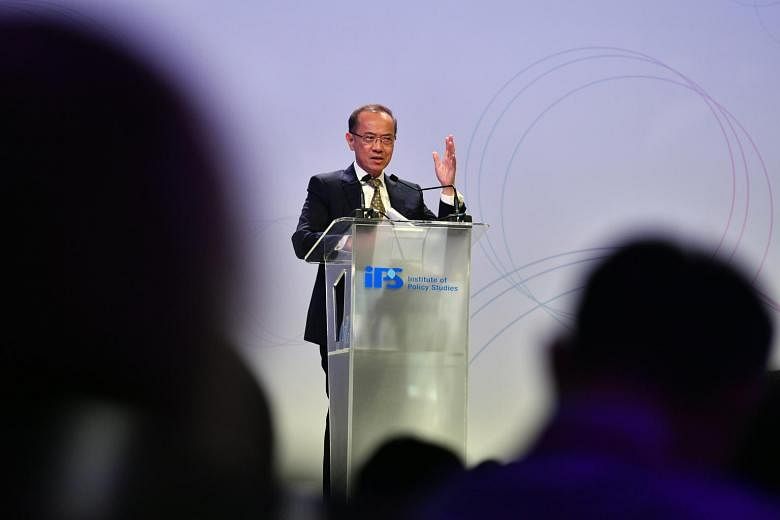Asean is a useful tool in managing tensions in the region and must remain central to Singapore's foreign policy.
Panellists at the conference, Singapore Perspectives, organised by the Institute of Policy Studies (IPS) yesterday underlined the importance of the 10-member regional bloc. "Asean is a vital and irreplaceable means of managing the tensions... and there is no substitute," retired Singapore diplomat Bilahari Kausikan said.
He acknowledged, however, that it is "one tool of many" and has limitations and hence, "not the panacea for all the ills in the world" as well as those in Singapore and the region.
Former foreign minister George Yeo said large communities from various Asean countries reside in Singapore, making the Republic the "most Aseanised country" among its members.
"A strong Asean gives us more room to manoeuvre" even as bigger nations engage in rivalry, he said.
He highlighted the importance of Indonesia taking the lead.
"Without Indonesia, it's very hard for Asean to coalesce a common position. In my years as a trade and foreign minister, I always made it a point of principle to align Singapore's interests with those of Indonesia's," he said.
"I hope in the coming years, we will spend much more time developing our relationship with Indonesia."
Foreign Minister Vivian Balakrishnan said Asean, as well as the European Union, are two of the most successful regional organisations in the world but had "different starting bases".
The EU's 28 member states have a lot in common in terms of civilisations, cultures and approach to law as well as trade, a commonality achieved after centuries of wars and conflicts.
Asean members, on the other hand, "recognise they are very different" with various ruling systems from absolute monarchies to military arrangements to varieties of democracies, yet the five founding member states have had "strong leaders who realised it was better to hang together than to hang separately", he said.
"Because of diversity, founders of Asean created this principle that everything will have to be decided by consensus," which has contributed to peace, prosperity and development, among other things, for more than 50 years.
"If you look at the numbers, we are poised for growth. We in the next 20 years we'll be number four in the world after China, US, EU," Dr Balakrishnan said.
Former Indonesian foreign minister Marty Natalegawa urged Asean countries not to be passive in policy response and display a "can-do spirit" and develop instruments to deal not only with the US and China, but other bilateral episodes including those between the US and Russia and China and Japan, and India and China.
Dr Natalegawa praised Singapore's "tremendous leadership" as chairman of the bloc last year.
He said: "All in all, it is a challenging environment, but Asean has in the past, whenever doubt had been suggested of its continued relevance, managed to reinvent itself and prove its relevance."


